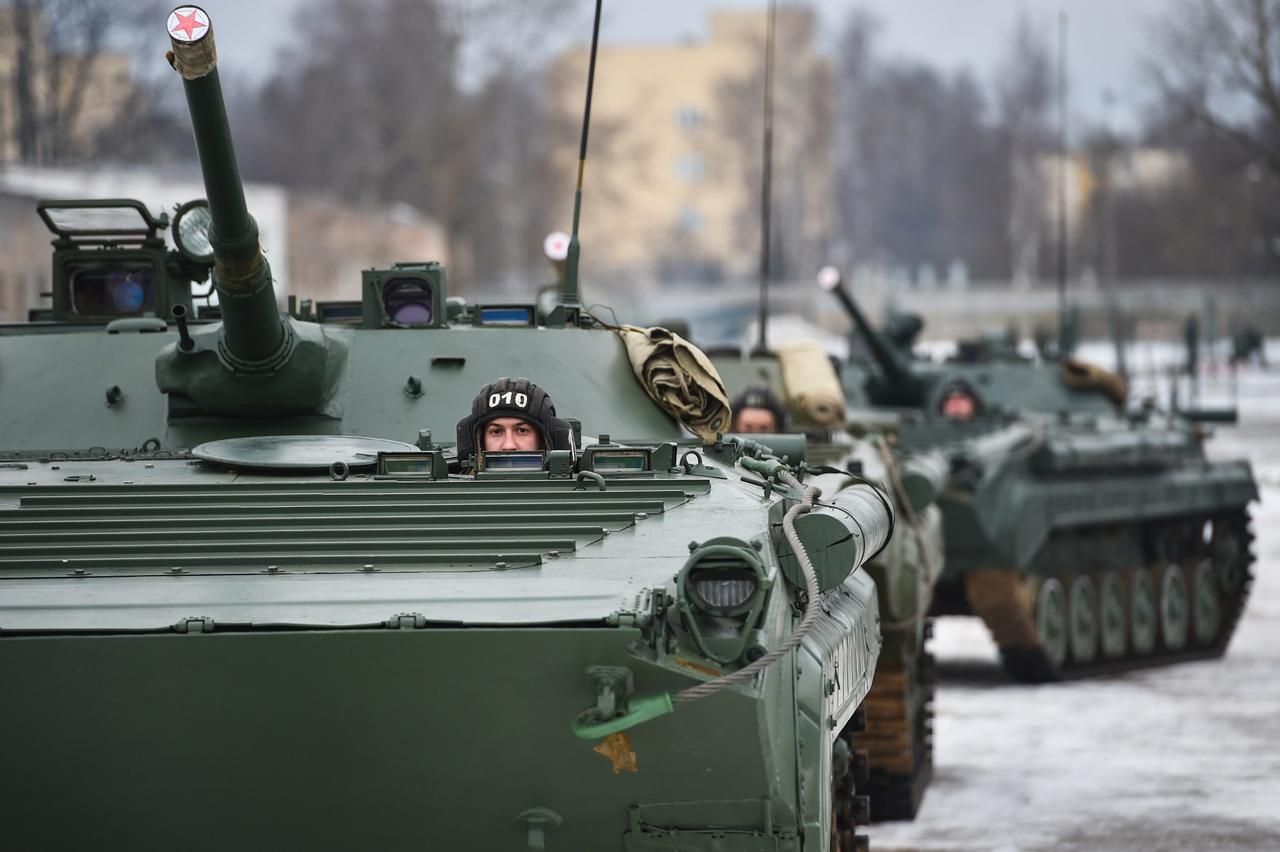February 24, 2022
Russia’s large-scale invasion of Ukraine on Thursday went beyond what many observers thought Russian President Vladimir Putin was prepared to do.
Now, as the war continues to rage across the country, it’s worth looking at how the conflict could spill beyond Ukraine’s borders.
First, Putin’s gamble has sparked fears that absorbing Ukraine may be a prelude to seeking a bigger chunk of Europe. The Baltic states, which chafed under Moscow’s control for decades and are home to large ethnic Russian minorities, are particularly worried. So too is Poland – no stranger to Russian invasions itself.
Poland and the Baltics, however, are members of NATO. A Russian war against the smaller, non-NATO army of Ukraine is very different from tangling directly with a powerful, nuclear-armed military alliance that has been bolstering its numbers in Eastern Europe for months. That’s a big gamble even for a leader who thinks he’s got the hot hand these days.
What's more, it would exceed Putin’s own stated aims, maximal as they are: to destroy Ukraine’s sovereignty and remake it as a demilitarized, Kremlin-controlled buffer state between Russia and NATO.
But even if Putin doesn’t intend to go beyond Ukraine, there is still the possibility of a miscalculation that could set Russia and NATO on a collision course. Wars are foggy. Missiles go awry. Targets are confused. Dogfights can spill into neighboring airspace. Passenger jets are sometimes shot down by Russian troops.
Both NATO and Russia need to exercise extreme caution to avoid an accidental escalation in the coming days and weeks.
Cyber makes this all much, much worse. Even as conventional weapons scream across Ukraine, cyberwarfare is heating up too. In the hours before Russia’s invasion, hackers took down several Ukrainian government and bank websites.
One immediate problem is that cyberweapons are hard to control: as we learned in 2017, a virus released in Ukraine can knock out hospitals as far away as the US and UK. A fight between Ukrainian and Russian hackers could wreak havoc elsewhere, forcing governments further afield to respond.
But there’s a bigger and far scarier risk when it comes to cyber, says Rafal Rohozinski, principal of SecDev Group, a cybersecurity firm. In a scenario of an escalating conventional conflict, he warns, Russia and the US could use cyberweapons to jam each other’s ability to detect and understand nuclear weapons movements as well.
Talking about nuclear weapons feels like a terrifying anachronism. But when Putin threatened on Thursday to hit interlopers with “consequences greater than any you have faced in history,” it was understood by many, including Rohozinski, as an implicit threat to use nukes.
Meanwhile, the Deputy Secretary General of NATO last week told the Munich Security Conference that a major cyberattack on a member state could be enough to trigger the alliance’s Article 5 collective defense obligations, but nobody knows what that would look like.
One big problem here is that when it comes to cyber — unlike conventional or nuclear war — there are no clear rules, precedents, or understandings about what constitutes an attack or a proportional response.
So this conflict is a “petri dish,” Rohozinski says, for how cyber interacts with conventional and nuclear forces in a major war.
Lastly, a humanitarian crisis will cross borders as well. Refugees are already on the move. Ukraine, a country of more than 40 million, shares frontiers with four EU member states, including Poland, Slovakia, Hungary, and Romania. As many as 5 million people could seek safety in the EU, depending on the extent of the conflict, and the arrivals are already underway.
The good news is that, unlike the 2016 Syrian migrant crisis, when the EU dithered and many Eastern European capitals refused to accept any migrants at all, Brussels and regional member states have swiftly rolled out the red carpet this time. They are setting up camps and mobilizing resources throughout the region.
That, says Mujtaba Rahman, the top Europe analyst at Eurasia Group, is because this time there are “cultural and religious affinities” with the refugees. They are Christian Europeans, whereas the Syrians were not. Coupled with “strong Eastern European solidarity with Ukraine,” he says, this makes it much easier for the EU to welcome in large numbers of desperate people without provoking a populist backlash.
From Your Site Articles
- Ukraine war: Has Putin overplayed his hand? - GZERO Media ›
- The US is at war with Russia: 4 scenarios from here - GZERO Media ›
- Ethnic Russians in Ukraine: A look back - GZERO Media ›
- Biden's Europe trip to show strengthened alliance against Russia - GZERO Media ›
- Defending Ukraine and Europe without the US - GZERO Media ›
- Russia’s next target? Why the Baltics are wary of Putin - GZERO Media ›
- European support for Ukraine remains strong ahead of Biden's visit - GZERO Media ›
- Could Russia invade the Baltics next? - GZERO Media ›
- As Russia gains ground in Ukraine, Baltic states worry the war will spread west - GZERO Media ›
More For You
Chris, an Army veteran, started his Walmart journey over 25 years ago as an hourly associate. Today, he manages a Distribution Center and serves as a mentor, helping others navigate their own paths to success. At Walmart, associates have the opportunity to take advantage of the pathways, perks, and pay that come with the job — with or without a college degree. In fact, more than 75% of Walmart management started as hourly associates. Learn more about how over 130,000 associates were promoted into roles of greater responsibility and higher pay in FY25.
Most Popular
- YouTube
Putin can't stop won't stop. #PUPPETREGIME
- YouTube
In this Quick Take, Ian Bremmer weighs in on the politicization of the Olympics after comments by Team USA freestyle skier Hunter Hess sparked backlash about patriotism and national representation.
© 2025 GZERO Media. All Rights Reserved | A Eurasia Group media company.
